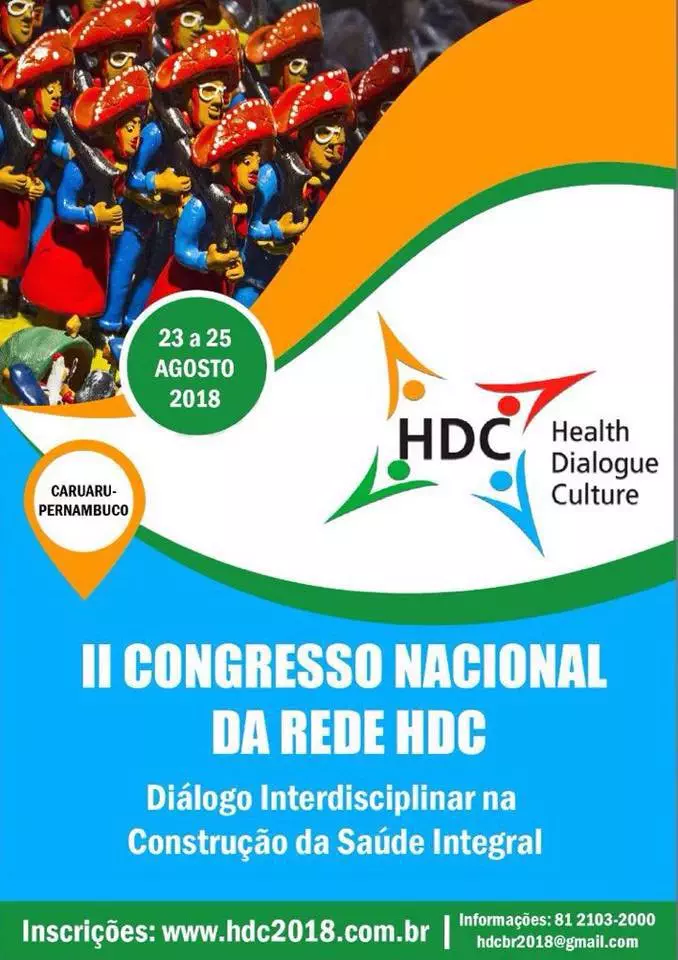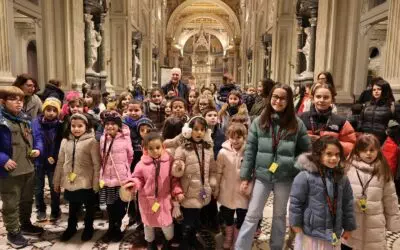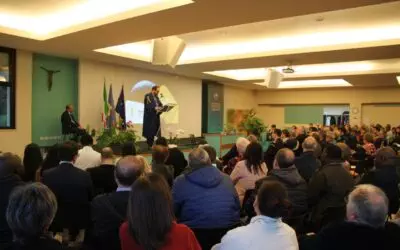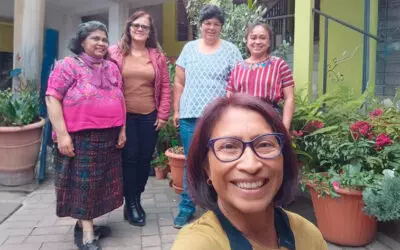 “Years ago, the doctor-patient relationship used to be called ‘a silent story.’ It was held that a good patient would follow a doctor’s orders without objection, without asking questions,” said Flavia Caretta, geriatric doctor at the A. Gemelli clinic in Rome and spokesperson for Health Dialogue Culture. She was also one of the organizers of its most recent conference at Caruaru, in the state of Pernambuco, Brazil, titled “Interdisciplinary dialogue in building holistic health” (23–25 August). Health Dialogue Culture connects medical professionals who, taking inspiration from Chiara Lubich’s spirituality of unity, started a series of reflections and knowledge sharing about curing the sick and considering them holistically. Close to 400 professionals attended the conference from every part of Brazil. “Patient dissatisfaction because of poor communication,” observes Caretta, “results higher than almost any other dissatisfaction about technical competence. Technological culture has caused those in the know to specialize, yet this often fractures the patient’s identity and the interpersonal relationships between those getting cured and those doing the curing. The risk is losing, or never even obtaining, the ability to see the infirm in their entirety… “Each call for a cure brings with it a need for relationship. To ignore this aspect means to reduce medicine to simply applying techniques or offering a service, when above all it is a meeting with a person.
“Years ago, the doctor-patient relationship used to be called ‘a silent story.’ It was held that a good patient would follow a doctor’s orders without objection, without asking questions,” said Flavia Caretta, geriatric doctor at the A. Gemelli clinic in Rome and spokesperson for Health Dialogue Culture. She was also one of the organizers of its most recent conference at Caruaru, in the state of Pernambuco, Brazil, titled “Interdisciplinary dialogue in building holistic health” (23–25 August). Health Dialogue Culture connects medical professionals who, taking inspiration from Chiara Lubich’s spirituality of unity, started a series of reflections and knowledge sharing about curing the sick and considering them holistically. Close to 400 professionals attended the conference from every part of Brazil. “Patient dissatisfaction because of poor communication,” observes Caretta, “results higher than almost any other dissatisfaction about technical competence. Technological culture has caused those in the know to specialize, yet this often fractures the patient’s identity and the interpersonal relationships between those getting cured and those doing the curing. The risk is losing, or never even obtaining, the ability to see the infirm in their entirety… “Each call for a cure brings with it a need for relationship. To ignore this aspect means to reduce medicine to simply applying techniques or offering a service, when above all it is a meeting with a person.  “The quality of the clinical conversation should not only depend on the application of scientific knowledge or the ‘ability’ of someone to communicate, but also their ability to enter in to what the patient is going through. The process of assisting them cannot just be considered a protocol to break down into procedures, because it implies a human dimension that is unpredictable and cannot be standardized, all mutually at play within the relationship. “No healing gesture has its complete effect without entering into relationship with the other … Among the new trends in medicine, in addition to communication and personalized cures, there is a new emphasis on lifestyle, to the role that community and society play in health, especially its spiritual side. “I would like to offer some processes that have been trialed and shared by many professionals in different fields, different places in the world and cultures. They instill their lives, as well as their professions, with the values found in the Focolare spirituality… “These strategies have been proven to be effective in relating with patients. For example listening, which requires setting aside worries, judgements, hurried diagnoses, in order to make space for what the patient wants to communicate with words, expressions, and silence. “Silence, too, is communication, and is sometimes more eloquent than anything to be understood in a conversation. There is also the commitment to succeed in identifying with the present moment, free from the hurry and conditions that could cloud the choices to make.”
“The quality of the clinical conversation should not only depend on the application of scientific knowledge or the ‘ability’ of someone to communicate, but also their ability to enter in to what the patient is going through. The process of assisting them cannot just be considered a protocol to break down into procedures, because it implies a human dimension that is unpredictable and cannot be standardized, all mutually at play within the relationship. “No healing gesture has its complete effect without entering into relationship with the other … Among the new trends in medicine, in addition to communication and personalized cures, there is a new emphasis on lifestyle, to the role that community and society play in health, especially its spiritual side. “I would like to offer some processes that have been trialed and shared by many professionals in different fields, different places in the world and cultures. They instill their lives, as well as their professions, with the values found in the Focolare spirituality… “These strategies have been proven to be effective in relating with patients. For example listening, which requires setting aside worries, judgements, hurried diagnoses, in order to make space for what the patient wants to communicate with words, expressions, and silence. “Silence, too, is communication, and is sometimes more eloquent than anything to be understood in a conversation. There is also the commitment to succeed in identifying with the present moment, free from the hurry and conditions that could cloud the choices to make.”  The consistency between spiritual values and applying them in a profession, highlighted Caretta, “does not only concern our rapport with patients. It is more essential than ever to act together with other disciplines. Especially in the last few years, scientific journals aimed at improving health services and the quality of care emphasize a care team, teamwork, and a multidisciplinary approach… “I remember something Vaclav Havel, poet and the first president of the Czech Republic, said: ‘Hope is not believing that things will change. Hope is believing that you can make a difference.” Reciprocity can transform every part of the health world, whether a health professional or patient, and every part of the academic world, whether student or scholar, to be agents of change.” For contacts, news and research, see healthdialogueculture.org.
The consistency between spiritual values and applying them in a profession, highlighted Caretta, “does not only concern our rapport with patients. It is more essential than ever to act together with other disciplines. Especially in the last few years, scientific journals aimed at improving health services and the quality of care emphasize a care team, teamwork, and a multidisciplinary approach… “I remember something Vaclav Havel, poet and the first president of the Czech Republic, said: ‘Hope is not believing that things will change. Hope is believing that you can make a difference.” Reciprocity can transform every part of the health world, whether a health professional or patient, and every part of the academic world, whether student or scholar, to be agents of change.” For contacts, news and research, see healthdialogueculture.org.
See others with a look of love
See others with a look of love




0 Comments